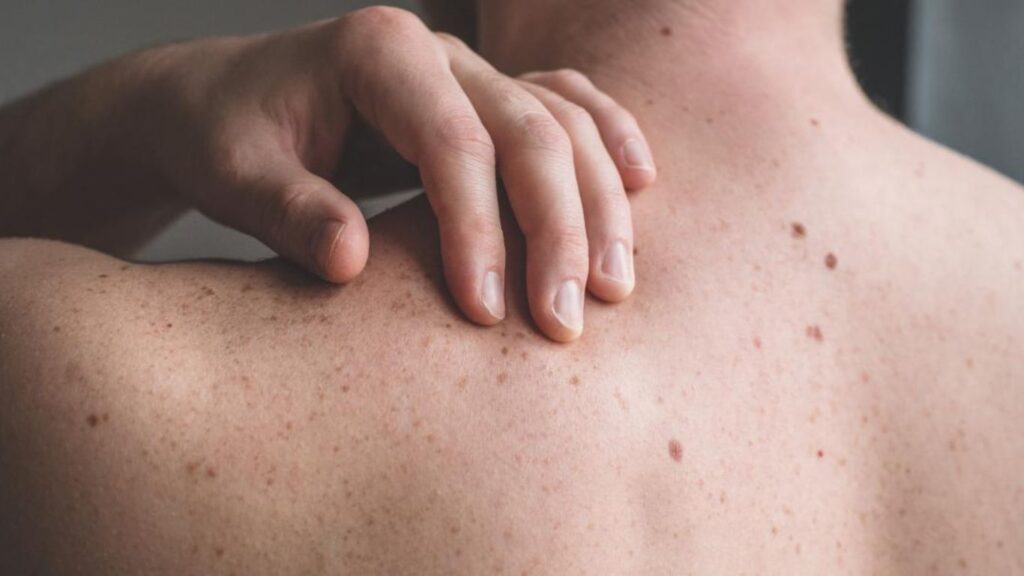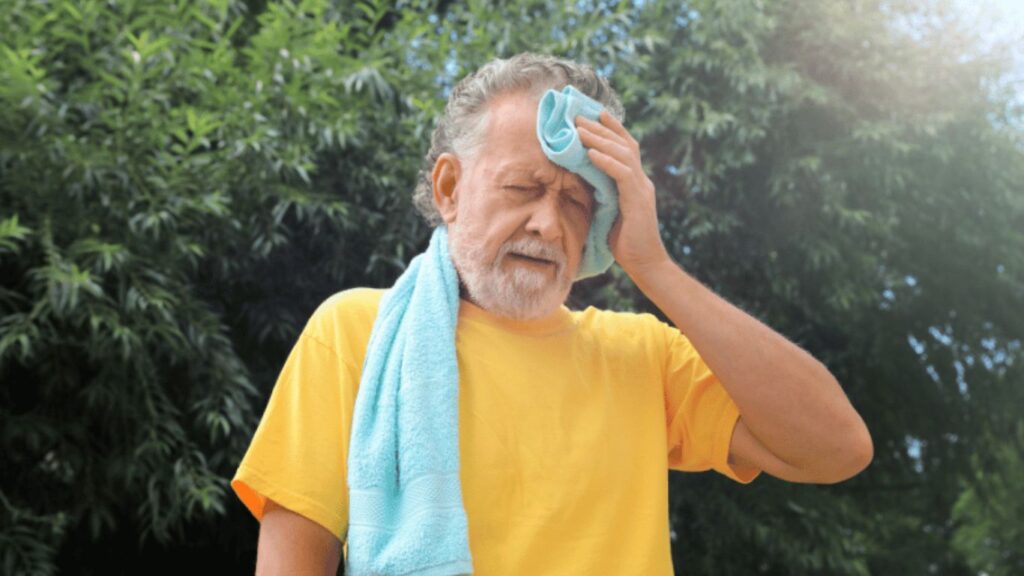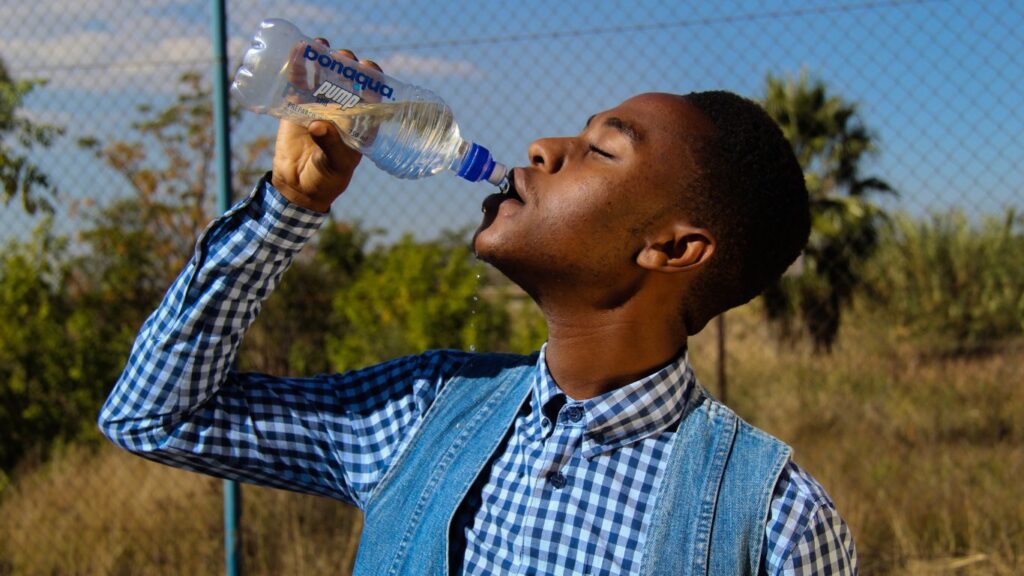Heatwaves are becoming more frequent and intense due to climate change, causing widespread concern globally. Heatwaves vary in duration and intensity but universally pose serious health risks. Understanding the impact of heatwaves on skin health is crucial as rising temperatures directly affect skin integrity. Prolonged exposure to heat can lead to dehydration, sunburn, and increased susceptibility to skin conditions like eczema and acne. Moreover, repeated exposure may accelerate skin aging, contribute to the development of hyperpigmentation, and increase the risk of skin cancer. Awareness empowers individuals to adopt preventive measures such as adequate hydration, sun protection, and appropriate skincare routines to mitigate these effects and maintain skin health during heatwave conditions.
Scorching Heat: How Heatwaves Impact Your Skin Health
Understanding Heatwaves
Heatwaves are defined as extended periods of abnormally hot weather, typically lasting several days to weeks, with temperatures significantly above average for a particular region during that time of year. They are characterized by their duration, intensity, and often by the lack of relief overnight, which can exacerbate their impact on human health and the environment. Several factors contribute to the intensity and duration of heatwaves, including climate change-induced warming trends, geographical location, urbanization (leading to heat islands), and natural climate variability patterns like El Niño. These factors can amplify the effects of heatwaves, making them more severe and prolonged.
Statistical data shows a clear trend of increasing frequency, duration, and intensity of heatwaves worldwide. According to reports from meteorological organizations and climate research institutes, the number of heatwave events has been rising steadily over the past few decades, with some regions experiencing record-breaking heat events. This trend underscores the urgent need for mitigation strategies and public awareness campaigns to minimize the adverse effects of heatwaves on human health and the environment.
Immediate Effects on Skin
Dehydration
During heatwaves, dehydration becomes a significant concern due to excessive sweating and increased water loss. Dehydration diminishes skin elasticity, leading to dryness, flakiness, and a more pronounced appearance of fine lines and wrinkles. This loss of elasticity can make the skin more vulnerable to damage and slower to recover from environmental stressors.
Increased risk of sunburn and UV damage:

Heatwaves often coincide with intense sunlight, heightening the risk of sunburn and UV damage. Extended exposure to UV rays without adequate protection can cause sunburn, premature aging (such as wrinkles and sunspots), and increase the risk of skin cancer over time. The combination of high temperatures and UV radiation during heatwaves requires vigilance in sun protection practices like using sunscreen, wearing protective clothing, and seeking shade when outdoors.
Impact on existing skin conditions like eczema and psoriasis:
Heatwaves can exacerbate existing skin conditions such as eczema and psoriasis. The heat and humidity levels can trigger flare-ups, causing itching, inflammation, and discomfort. Individuals with these conditions may experience intensified symptoms during heatwaves, necessitating careful management with appropriate skincare routines, moisturization, and potentially medical treatments to soothe and protect the skin barrier.
Long-term Effects on Skin Health
Accelerated aging due to prolonged exposure to heat:
Prolonged exposure to heat during heatwaves can accelerate skin aging processes. High temperatures can lead to increased production of free radicals in the skin, which can break down collagen and elastin fibers. This breakdown contributes to loss of skin elasticity, leading to wrinkles, fine lines, and sagging over time. Heat-induced dehydration further exacerbates these effects, making the skin appear prematurely aged.
Development of hyperpigmentation and sunspots:
Heatwaves often coincide with intense sunlight exposure, increasing the risk of developing hyperpigmentation and sunspots. UV radiation stimulates melanocyte activity, leading to uneven distribution of melanin in the skin. Prolonged exposure during heatwaves can result in dark spots, freckles, and patches of hyperpigmentation, particularly in areas exposed to the sun without adequate protection.
Increased risk of skin cancer and its correlation with heat exposure:
The correlation between heat exposure and increased risk of skin cancer, particularly melanoma, is well-documented. Heatwaves often coincide with higher UV index and longer periods of sunlight exposure, which are major risk factors for skin cancer development. UV radiation damages DNA in skin cells, leading to mutations that can trigger cancerous growths. Therefore, minimizing exposure to intense heat and UV radiation through sun protection measures is crucial in reducing the risk of skin cancer during heatwaves.
Vulnerable Groups
Children and their sensitive skin:
Children have sensitive skin that is more vulnerable to heatwaves. Their thinner skin layers make them prone to sunburn and dehydration. It’s crucial to protect children with sunscreen (SPF 30 or higher), hats, and lightweight clothing. Encouraging frequent hydration and limiting outdoor activities during peak heat can prevent overheating and discomfort.
Elderly individuals and their decreased heat tolerance:

Elderly individuals often have decreased heat tolerance due to aging. They may have underlying health conditions or medications that affect their ability to regulate body temperature. During heatwaves, it’s important for them to stay indoors in cool environments, drink plenty of fluids, and wear light clothing. Caregivers should monitor them closely for signs of heat-related illnesses like heat exhaustion or heatstroke.
People with pre-existing skin conditions or compromised immune systems:
Those with pre-existing skin conditions (e.g., eczema, psoriasis) or compromised immune systems are more susceptible to flare-ups during heatwaves. High temperatures and UV exposure can exacerbate symptoms, leading to itching, inflammation, or infection. They should follow tailored skincare routines recommended by dermatologists, avoid triggers like excessive heat or sweating, and seek medical advice promptly for any worsening symptoms during heatwaves.
Strategies for Skin Protection During Heatwaves
Sunscreen and its proper application:
Sunscreen is essential during heatwaves to protect the skin from harmful UV rays. Proper application involves using a broad-spectrum sunscreen with SPF 30 or higher, applying it generously to all exposed skin areas, and reapplying every 2 hours or after swimming or sweating. This helps prevent sunburn, premature aging, and reduces the risk of skin cancer.
Hydration tips to maintain skin moisture levels:

Staying hydrated is crucial during heatwaves to maintain skin moisture and elasticity. Drink plenty of water throughout the day, and consider incorporating hydrating foods like fruits and vegetables. Using a lightweight, water-based moisturizer can also help replenish lost hydration and soothe parched skin.
Clothing choices and UV protection clothing:
Choosing clothing with tightly woven fabrics and dark colors provides better protection against UV rays. UV protection clothing with UPF (Ultraviolet Protection Factor) ratings offers added defense, especially for prolonged outdoor activities during heatwaves.
Seeking shade and limiting outdoor activities during peak heat hours:
Seeking shade and avoiding outdoor activities during peak heat hours (typically 10 AM to 4 PM) reduces direct sun exposure and lowers the risk of heat-related illnesses. When outdoors, use umbrellas, hats, and sunglasses for additional protection against UV radiation and heat exhaustion.
Conclusion
Understanding the profound effects of heatwaves on skin health is imperative in safeguarding our well-being. From dehydration and increased sunburn risk to exacerbating skin conditions and accelerating aging, heatwaves present significant challenges. Embracing protective measures such as sunscreen application, adequate hydration, UV-protective clothing, and minimizing outdoor exposure during peak heat hours are essential steps. By prioritizing skin care during heatwaves, we can mitigate risks, preserve skin integrity, and promote long-term health and resilience against the rising temperatures brought by climate change.
Also read: The Hidden Danger of Eye Strokes During Heatwaves
